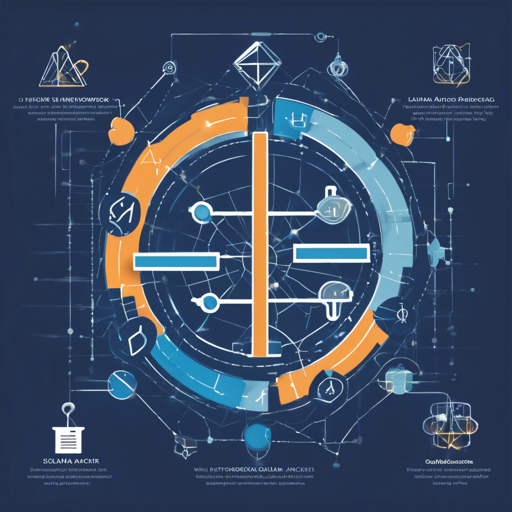Solana Sealevel Framework
Welcome to the world of Solana and the Anchor framework! Anchor harnesses the power of Solana’s Sealevel runtime, offering developers a streamlined environment to write smart contracts with ease. Whether you’re new to smart contract development or coming from Ethereum’s Solidity, you’ll find the experience to be intuitive and familiar.
Understanding Anchor: A Quick Analogy
Imagine you’re a master chef in a bustling kitchen (the Solana blockchain). The Anchor framework is like a complete cooking toolkit equipped with all the utensils, spices, and ingredients needed to whip up exquisite meals (smart contracts). Just as a chef relies on their toolkit to prepare delicious dishes efficiently, developers use Anchor to create and manage smart contracts seamlessly. With its elegant tools—rust eDSL for programming, IDL specifications, and TypeScript packages—you’ll feel right at home stirring up smart contracts in no time!
Key Features of Anchor
- Rust eDSL for writing Solana programs.
- IDL (Interface Description Language) specification.
- TypeScript package for generating clients from IDL.
- CLI and workspace management for developing complete applications.
Getting Started
To dive in, check out the anchor book for a comprehensive guide and tutorials. You can also access older documentation while it’s being phased out. If you’re eager for code snippets, visit this link for examples. For the latest Rust and TypeScript API documentation, head to docs.rs and typedoc.
Getting Your Hands Dirty: Your First Counter Program
Here’s a simple counter program designed to demonstrate the essential functionalities of the Anchor framework:
rust
use anchor_lang::prelude::*;
declare_id!("Fg6PaFpoGXkYsidMpWTK6W2BeZ7FEfcYkg476zPFsLnS");
#[program]
mod counter {
use super::*;
pub fn initialize(ctx: Context, start: u64) -> Result<()> {
let counter = &mut ctx.accounts.counter;
counter.authority = *ctx.accounts.authority.key;
counter.count = start;
Ok(())
}
pub fn increment(ctx: Context) -> Result<()> {
let counter = &mut ctx.accounts.counter;
counter.count += 1;
Ok(())
}
}
#[derive(Accounts)]
pub struct Initialize<'info> {
#[account(init, payer = authority, space = 48)]
pub counter: Account<'info, Counter>,
pub authority: Signer<'info>,
pub system_program: Program<'info, System>,
}
#[derive(Accounts)]
pub struct Increment<'info> {
#[account(mut, has_one = authority)]
pub counter: Account<'info, Counter>,
pub authority: Signer<'info>,
}
#[account]
pub struct Counter {
pub authority: Pubkey,
pub count: u64,
}
Breaking Down the Code
The counter program involves two primary functions: initialize and increment. The initialize function sets up the counter with a starting value provided by the user, while the increment function allows the designated authority to increase the count.
In simpler terms, think of the counter as a jar that keeps track of cookies. The initialize function is like a bakery manager setting the initial number of cookies (starting count) in the jar. Later, the increment function allows the manager (authority) to add a cookie (increase the count) anytime they please!
Troubleshooting: Common Issues
- Ensure you have the latest version of the Rust toolchain installed.
- If you encounter errors during compilation, re-check your syntax with the examples provided.
- To resolve dependency issues, ensure your Cargo.toml file includes all required crates.
- For more insights, updates, or to collaborate on AI development projects, stay connected with fxis.ai.
Take Note
Remember, Anchor is actively being developed, so APIs may change. Always keep an eye on the documentation when working with Anchor!
The Future with Anchor
For prevailing trends in smart contract development and to join the innovative work on the Anchor framework, be sure to explore the GitHub repository.
At fxis.ai, we believe that such advancements are crucial for the future of AI, as they enable more comprehensive and effective solutions. Our team is continually exploring new methodologies to push the envelope in artificial intelligence, ensuring that our clients benefit from the latest technological innovations.
Concluding Thoughts
Anchor simplifies the process of building on the Solana blockchain, empowering developers to create effective and scalable smart contracts. With ongoing community support and a wealth of resources, you’re well-equipped to embark on your smart contract development journey!

